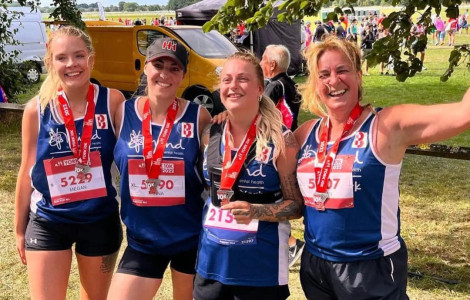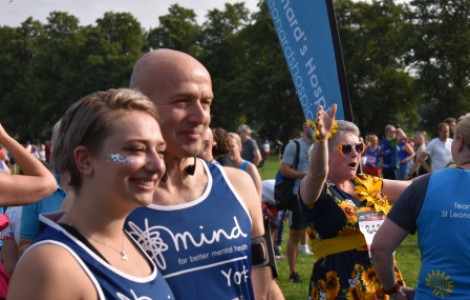3rd August 2025, 9:30
Posted: 1st May 2024
Move for Your Mind
Why Exercise is important for Mental Health & Where to get started.
Written by Hannah Kay.
It’s time to spotlight the incredible relationship between movement and mental health. While the benefits of physical exercise for our bodies are well-documented, its impact on our mental health often goes underappreciated.
Beyond just sculpting our physique and improving our cardiovascular system, engaging in regular physical activity can serve as a miracle worker for our minds, offering an array of psychological benefits that extend far beyond the gym or the running track.
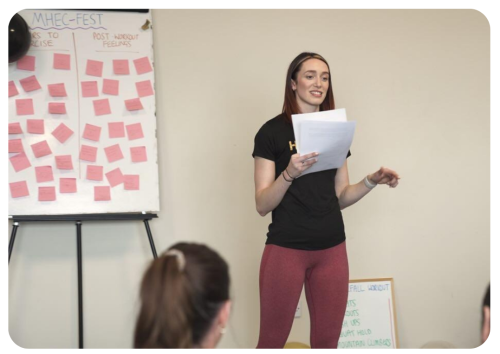
Hannah at MHEC Fest (Free Mental Health & Exercise Festival)
As a Certified Mental Health and Exercise Coach, my role is to help improve and maintain people’s mental health positively through the use of exercise. Only 13% of the population say they exercise regularly, so the other 87% of you are missing out on incredible benefits to your mental health; therefore also the ability to live a happier, healthier and longer life thanks to exercise. Below are some benefits of exercise, specifically for your mental health.

Meet Hannah Kay! You can view Hannah's Instagram here.
- Reduces Stress: As we all know Stress is a rising killer and exercise triggers the release of endorphins, chemicals in the brain that act as natural painkillers and mood elevators, helping to alleviate stress and promote a sense of well-being within all areas of your life.
- Improves Mood: Regular physical activity has been shown to boost mood and reduce symptoms of depression and anxiety by increasing levels of neurotransmitters like serotonin and dopamine, which are known to regulate mood. As a knock on effect of your improved mood, your productivity increases by 12% and you’re up to 31% smarter when you’re in a positive frame of mind.
- Greater Self-Worth: And a new level of certainty due to achieving things you didn’t think were possible such as engaging in exercise regularly and understanding the benefits.
- Increases Energy Levels: Exercise improves circulation and oxygen flow throughout the body, leading to increased energy levels and reduced feelings of fatigue.
- Enhances Cognitive Function: Physical activity has been linked to improved cognitive function and memory, as it stimulates the growth of new brain cells and enhances connectivity between brain regions.
- Promotes Better Sleep: Regular exercise can help regulate sleep patterns and improve sleep quality, leading to better overall mental health and cognitive function.
- Reduces Risk of Cognitive Decline: Studies suggest that regular exercise may help reduce the risk of cognitive decline and dementia in older adults by promoting brain health and neuroplasticity.
- Provides a Sense of Purpose: Setting and achieving fitness goals through exercise can provide a sense of purpose and direction, fostering a positive outlook on life and improving overall mental well-being.
- Offers Social Support: Participating in group exercise classes or team sports provides opportunities for social interaction and support, which can reduce feelings of loneliness and isolation and improve mental health.
- Acts as a Coping Mechanism: Exercise can serve as a healthy coping mechanism for dealing with stress, sadness, or other emotional challenges, providing a constructive outlet for managing emotions and improving resilience. One thing to note here is that the blend of Exercise and Talking Therapy will improve the ability to deal with emotional challenges long term.
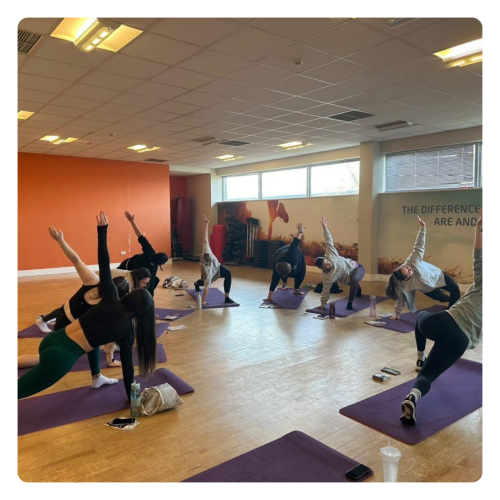 How fun does this look?! You can see all of the upcoming events Hannah is running here.
How fun does this look?! You can see all of the upcoming events Hannah is running here.
Knowing these benefits and seeing how your life could improve by simply taking up a form of exercise regularly, we can now move on to look at the forms of exercise to get you moving more. Below is a list of examples:
- Walking: A simple yet effective form of exercise that can be done almost anywhere. Whether it's a brisk walk around the neighbourhood or a leisurely stroll in the park, walking is a great way to get moving and improve cardiovascular health.
- Running/Jogging: Running or jogging is a high-intensity cardiovascular exercise that can help improve endurance, burn calories, and boost mood through the release of endorphins.
- Cycling: Riding a bicycle is not only a fun way to explore your surroundings but also an excellent form of low-impact aerobic exercise that strengthens the legs and improves cardiovascular health.
- Swimming: Swimming engages multiple muscle groups while providing a low-impact workout. It's particularly beneficial for those with joint pain or mobility issues.
- Strength Training: This involves using resistance to build muscle strength and endurance. It can be done with free weights, resistance bands, or using your body weight through exercises like push-ups, squats, and lunges.
- Yoga: Yoga combines physical postures, breathing techniques, and meditation to improve flexibility, strength, and mental clarity. It's a holistic practice that benefits both the body and mind.
- Pilates: Pilates focuses on core strength, flexibility, and body awareness. It involves precise movements and controlled breathing to improve posture, balance, and overall muscle tone.
- Dancing: Whether it's ballet, salsa, hip-hop, or ballroom dancing, moving to the rhythm of music is a fun way to burn calories, improve coordination, and lift your spirits.
- Hiking: Exploring nature trails or hiking up hills provides a challenging workout for both the body and mind. It offers the benefits of cardiovascular exercise along with the rejuvenating effects of being outdoors.
- Team Sports: Engaging in team sports like soccer, basketball, volleyball, or tennis not only provides a great workout but also fosters social connections and teamwork skills.
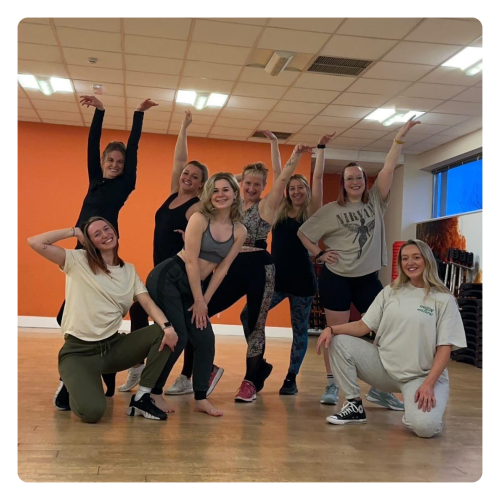
These are just a few examples of the diverse ways you can incorporate exercise into your routine, catering to different preferences and fitness levels. Now let’s take the forms of exercise, pair them with the benefits and by-products and create a happy, healthy long lasting routine with exercise and see the improvement of your mental health soar.
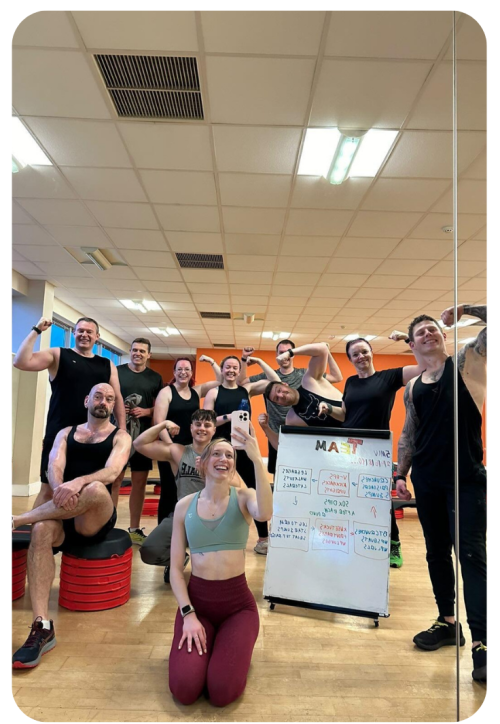
What a TEAM! Find all updates on The Team York's Instagram here.
Here's a little something for you...
I have worked with Beth Cameron, in collaboration with Simon Taylor from York Mind, Donna from Level 10, Stef Bricklebank, and Chris Klays, to develop a completely free wellbeing planner PDF download, which you can find here.
The planner features proven ways to assist you in establishing a routine, practicing mindfulness, and setting goals. Pages include a gratitude journal, daily goals/mood tracker, scheduling support, a vision board template, habit tracking, and general tips for wellbeing, including exercise.
